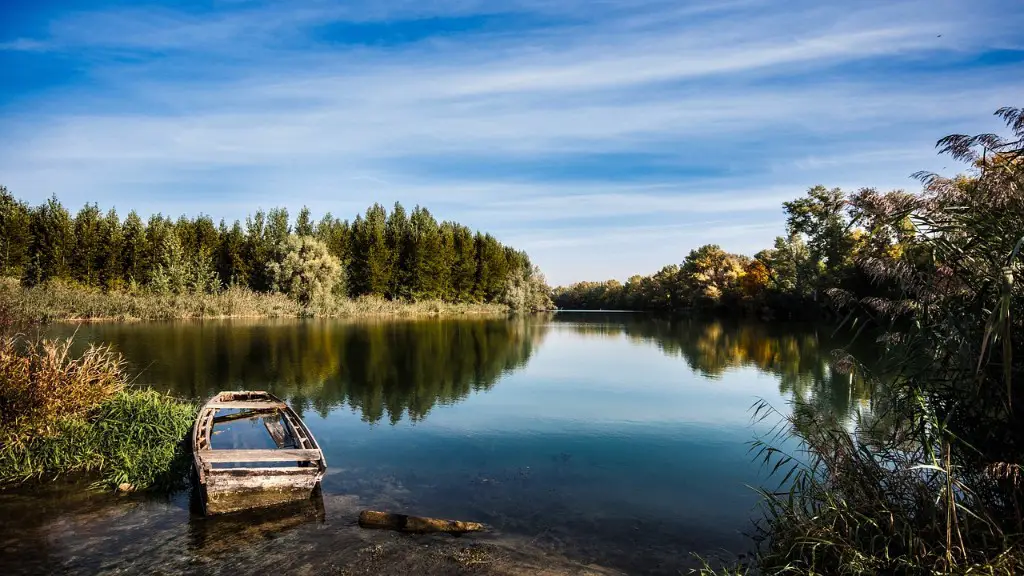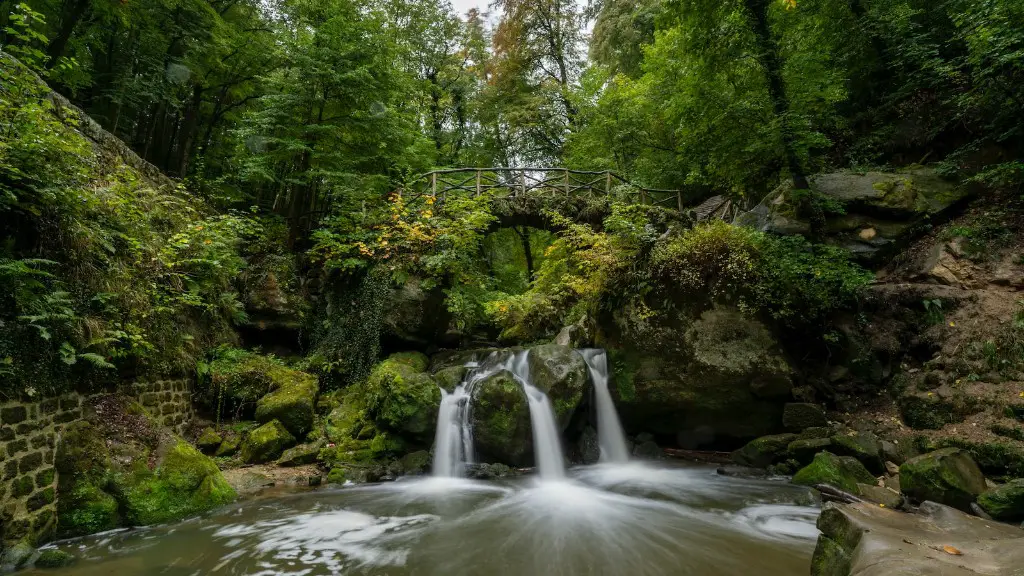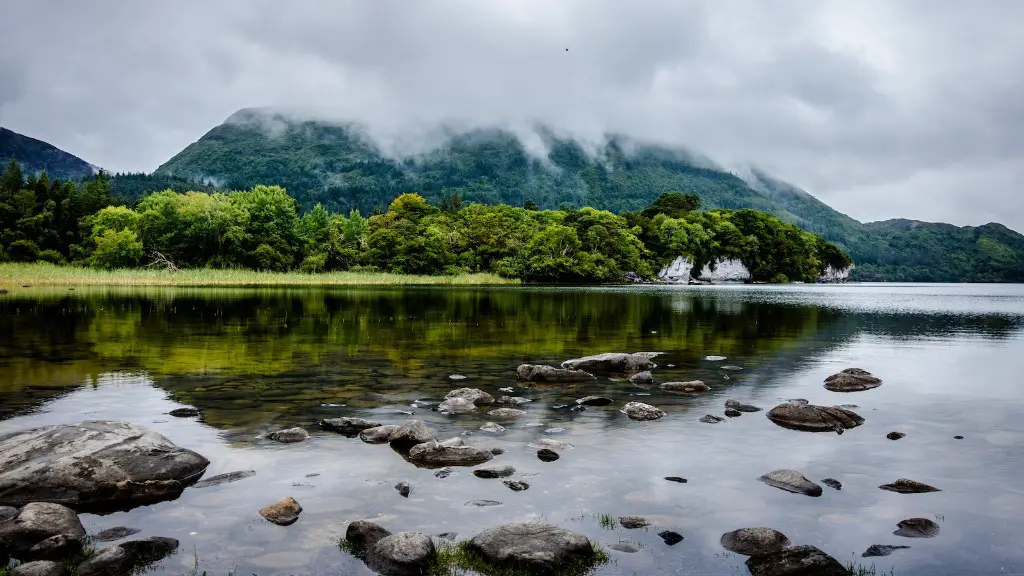The Nile is one of the most important rivers in the world, and has been a source of sustenance and life for hundreds of thousands of years. It has been an integral part of the culture and economy of Ancient Egypt, providing a vital artery of both material and spiritual life. Ancient Egyptians believed that without the Nile there could be no civilization. In this article, we will explore why the Nile River was so important to Ancient Egypt and what implications it had on the development of their culture.
The importance of the Nile River is due to its massive and reliable supply of water. It provided water for drinking, cooking and bathing, as well as for crops and fodder. Ancient Egyptians were able to irrigate their crops via the floodwaters of the Nile, which also helped to fertilize the soil. In addition, the Nile provided a means of transportation, with ships and boats carrying goods and people up and down the river, connecting distant lands and civilizations with each other.
The Nile was also the source of many of the essential minerals, stones, and resources that Ancient Egyptians used for their buildings and monuments. Limestone, granite, bricks, and sand were imported from Aswan, while copper and gold were extracted from mines in Nubia. This enabled them to build monumental works of architecture such as the pyramids, temples and obelisks.
Historians and archaeologists have identified a strong religious and spiritual connection between Ancient Egyptians and the Nile. The river was seen as a connection to the gods and was venerated as a life-giving force. The gods of the river were worshipped, and festivals and ceremonies were held to celebrate their bounty. The Ancient Egyptian myth of Osiris and Isis also reflects this deep spiritual bond, as the story explores the birth and death of the god, interpreted by some as a metaphor for the annual flooding of the Nile.
Today, the importance of the Nile remains strong. In addition to providing an essential source of water for irrigation, it also supports tourism and various industries. The river is an important source of hydroelectric power and a landmark for navigation, and the countries in the Nile Basin region have recognized the importance of sustainable management of the river. Despite immense economic and social pressures from rapid population growth, the Nile has been able to meet the needs of many people.
Socio-Economic Impact
The Nile River has had a profound socio-economic impact on Ancient Egypt, and the repercussions of that can still be felt today. Without the river, the people of Ancient Egypt would not have been able to form a powerful civilization that endured for thousands of years. The dependability of the river’s water provided an ample supply of food to sustain the population and kept diseases at bay. This enabled the population to grow to a great size, creating an economy based on agriculture and trade.
The population was also able to build a complex system of monuments and temples that have withstood the test of time. The river was also a crucial source of transportation, allowing for the trade of goods between countries in the region and facilitating the spread of knowledge and culture.
Global Perspective
The Nile River is an important river for many countries located in the Middle East and Africa. It runs through 10 African countries and is the lifeline to millions of people who depend on it for their livelihood. This has led to tensions between the countries in the Nile Basin, as they all struggle to make use of the river’s resources. The countries are also increasingly aware of the danger of over-exploitation, as an overabundance of dams and water diversion projects can cause irrevocable damage to the fragile ecosystems of the region.
To ensure the wellbeing of the river, there has been much work done to establish international cooperation and goodwill between the countries in the region. The Comprehensive Framework Agreement of the Nile Basin, signed in 2015, was an effort to promote dialogue, understanding and cooperation. The agreement is the first of its kind, and is seen as a step forward in the progress of international harmonization around the Nile.
Environmental Impact
The Nile is undergoing significant environmental change due to climate change and human activity. In recent years, the river has experienced extended droughts, threatening the availability of water and thus the livelihoods of the people who depend upon it. In addition, the structure and ecosystems of the river have been severely impacted by the construction of dams and other water control projects. This has caused a decrease in the biodiversity of the river, leading to a disruption of the food chains that sustain life in the region.
Despite all of these challenges, the Nile still remains a vital resource and a source of life and sustenance for millions of people, and its importance should not be underestimated. In the future, it is essential that the countries around the Nile Basin respect the environment and work together to protect the river and its surrounding ecosystems. With concerted effort, it may be possible to ensure the long-term sustainability of the river, and the many people who rely upon it.
Future Stability
The stability of the Nile River and its surrounding ecosystems is crucial for the future of Egypt and the wider region. This is why it is so important for the countries along the river to cooperate and find solutions to the various challenges that the river faces. The recent Comprehensive Framework Agreement is a welcome step, but the countries in the region must continue to work together, coming up with sustainable solutions to protect the river and promote development.
In the future, it is also important to find ways to limit the impact of climate change on the river. This means investing in renewable sources of energy, as well as increasing the efficiency of water use and promoting conservation efforts. By doing this, the countries of the Nile region can hope to ensure the future of their river and the people who depend upon it.
Conservation Efforts
To ensure the future of the Nile River, conservation efforts must be taken. This includes preventing pollution, limiting the impact of climate change, and promoting sustainable practices. This means investing in renewable sources of energy and curbing overfishing, as well as preventing over-irrigation, which can lead to the leaching of essential minerals from the soil.
In addition, it is important to educate people about the importance of the river, so that they are aware of the need to conserve it. This can include educating the younger generations, as well as providing incentives and rewards for sustainable activities in the area. By doing this, the people of the region can come together to protect the river and ensure its future.
Conclusion
The Nile River was an integral part of ancient Egyptian life, providing sustenance, resources, and spiritual connection. Its importance remains strong today, with many countries in the region being dependent on the river for their livelihoods. It is essential that the countries of the Nile Basin continue to cooperate and work together to protect the river and its surrounding ecosystems, so that it can continue to provide life and sustenance for millions of people for years to come.




